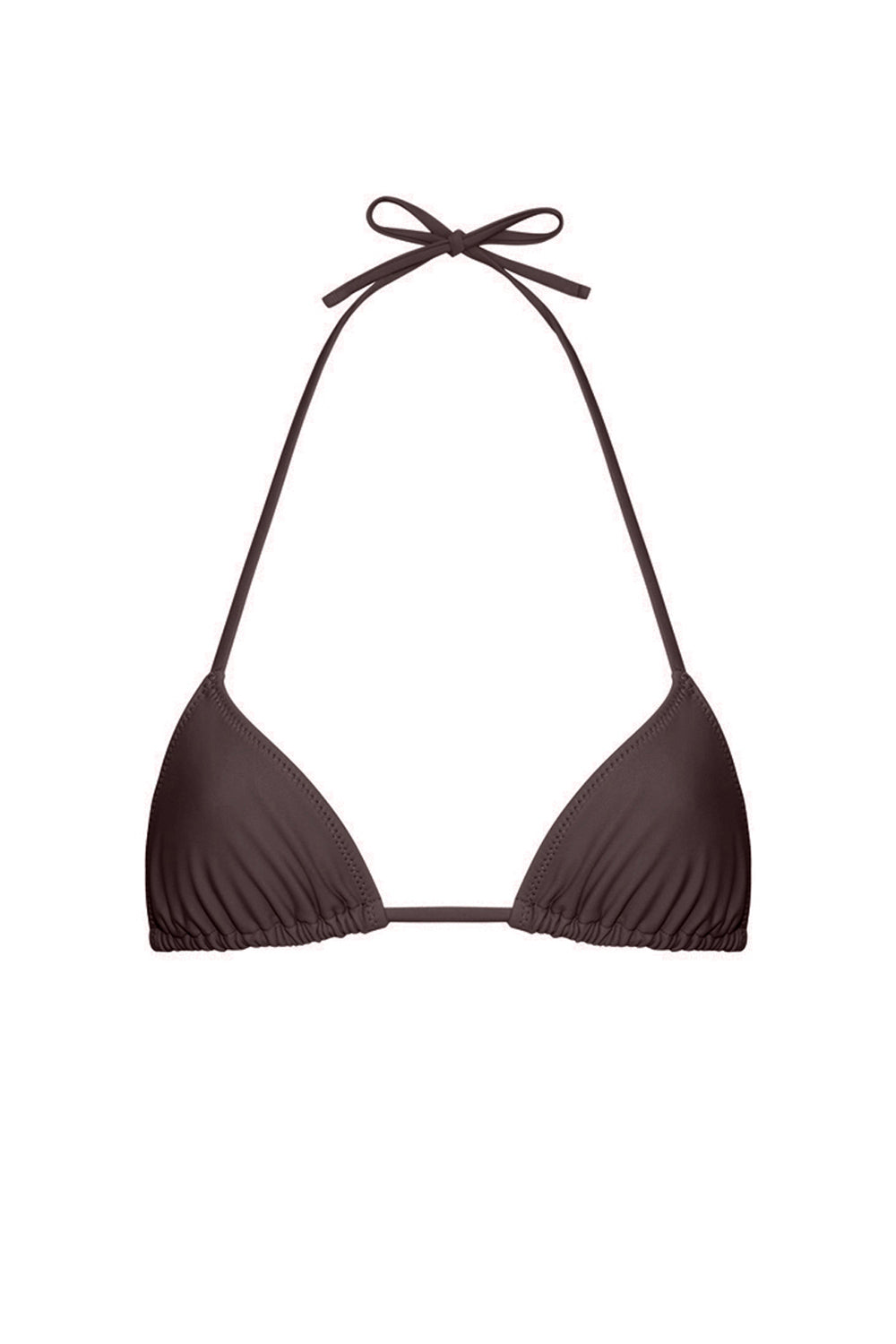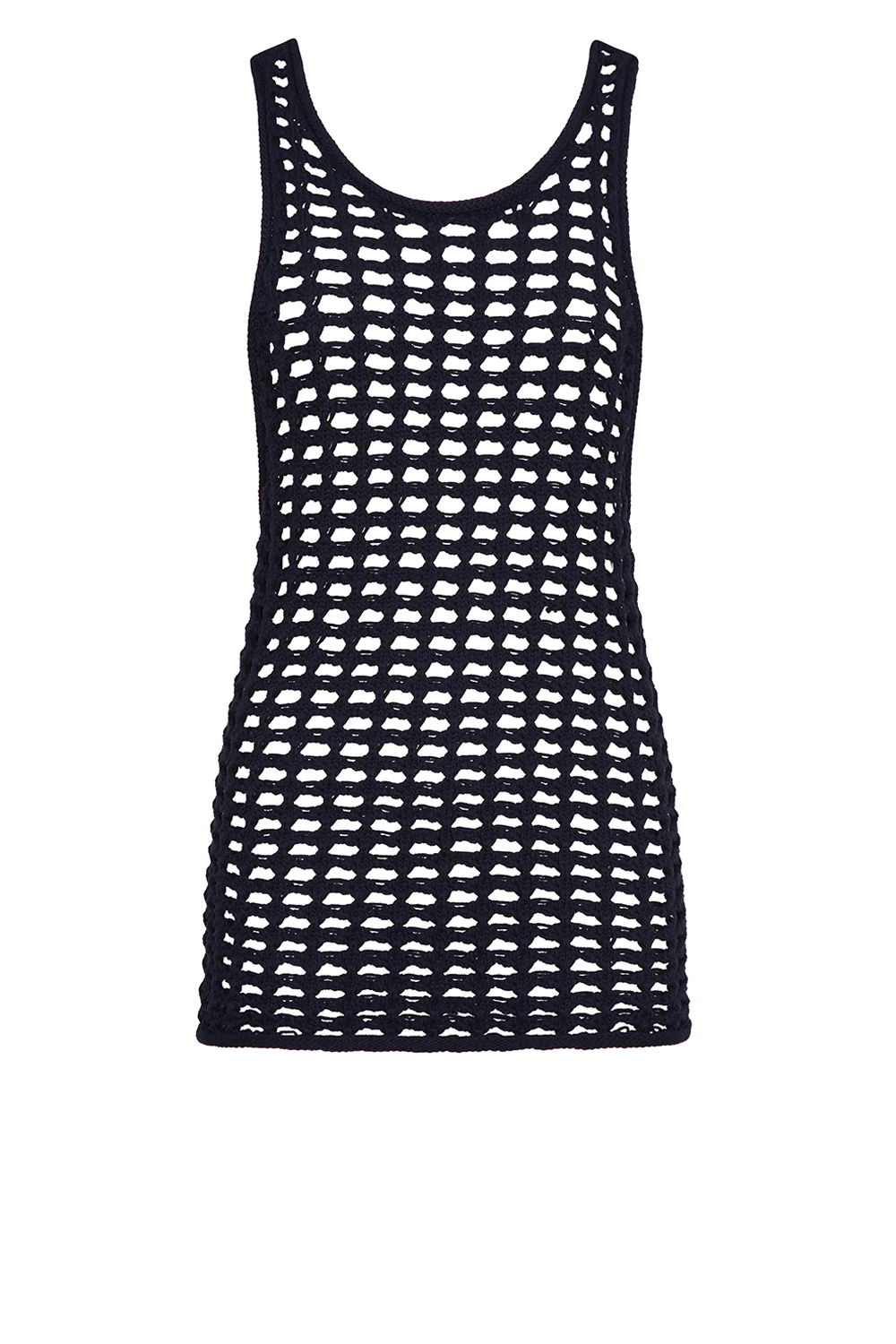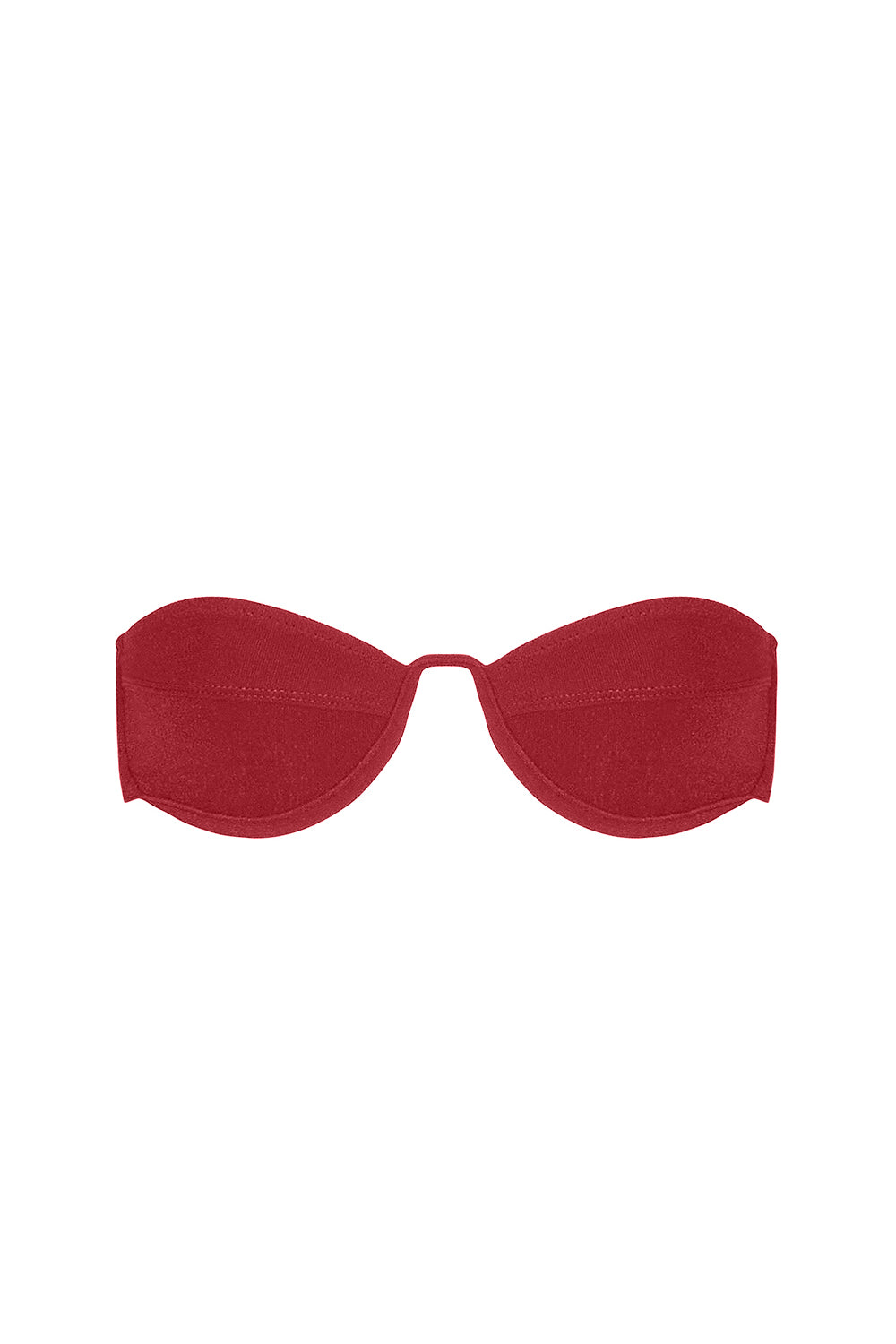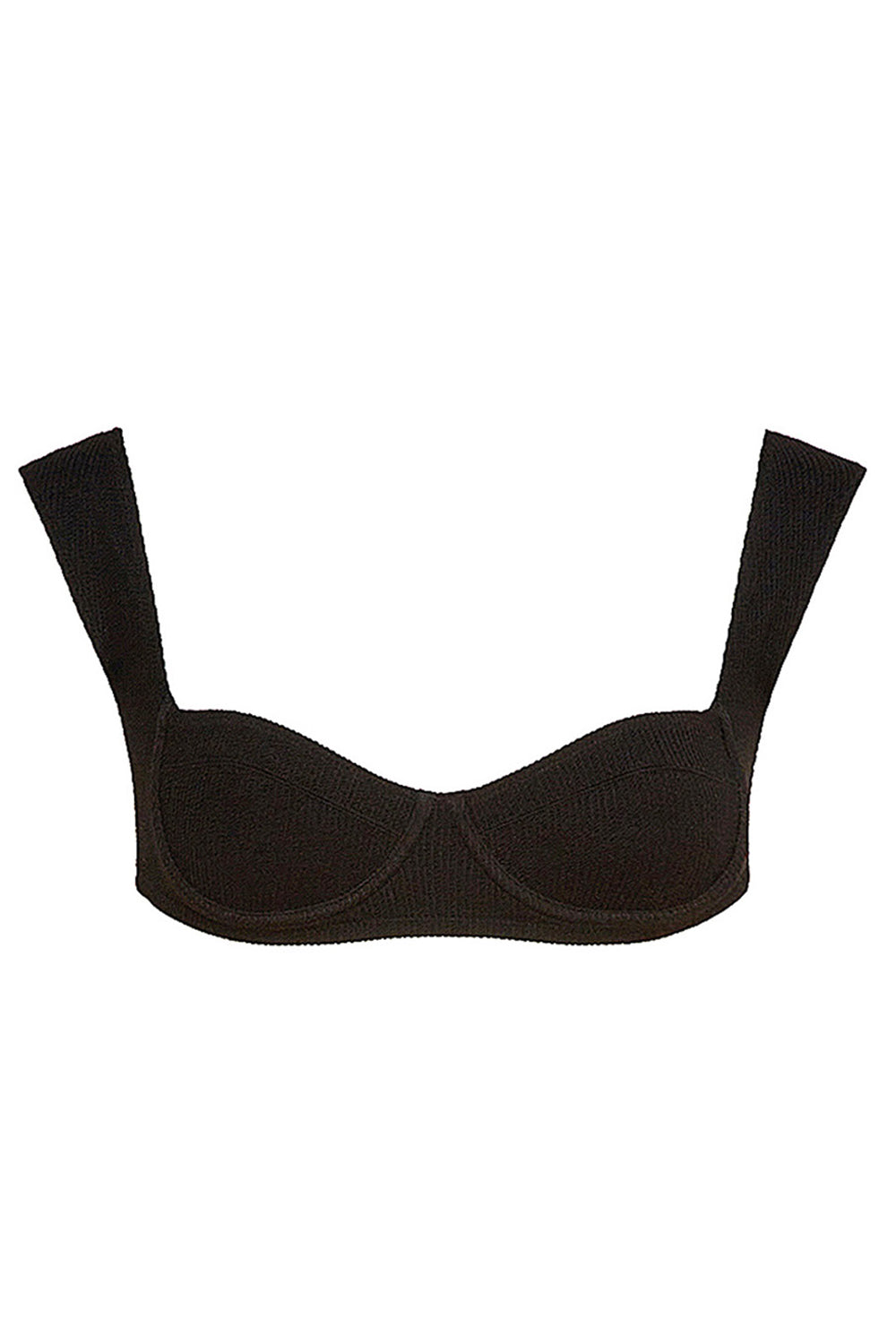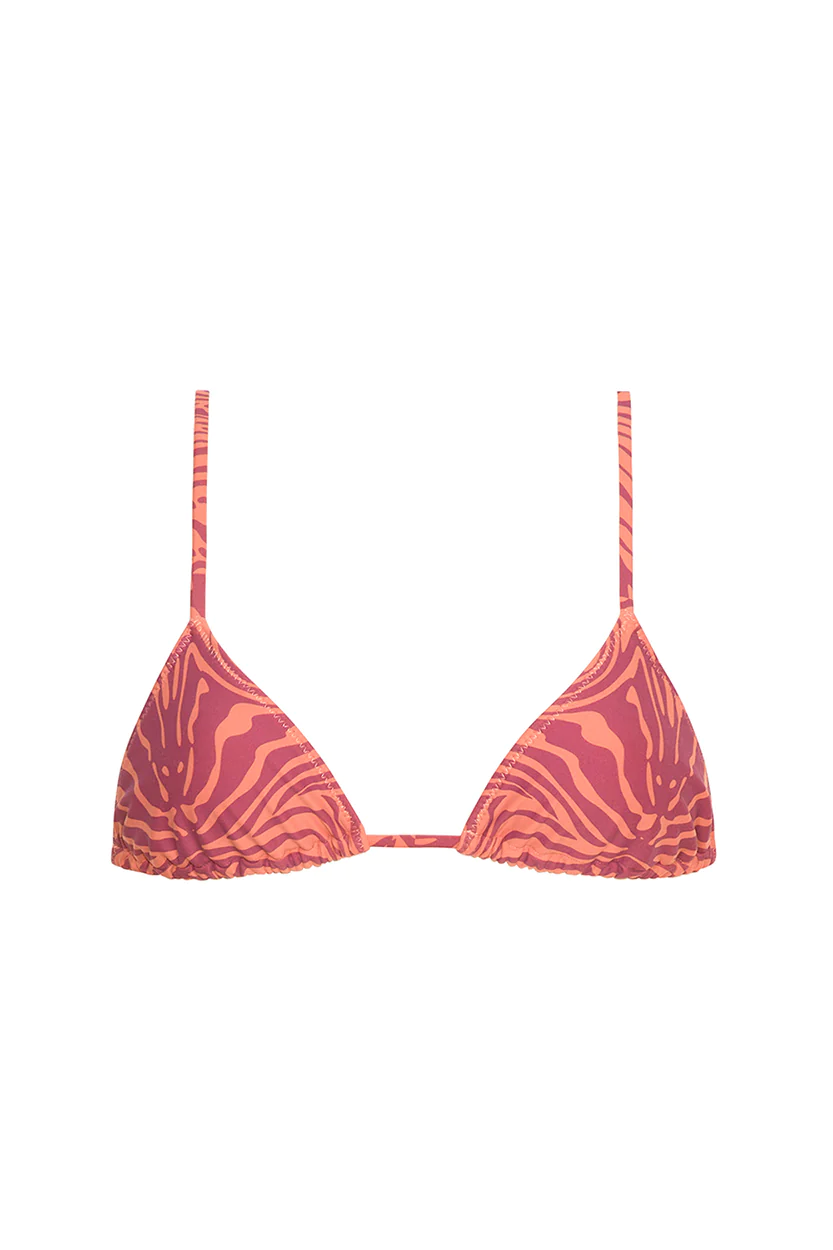Candice Swanepoel Shares the Swimsuits Everyone Should Own
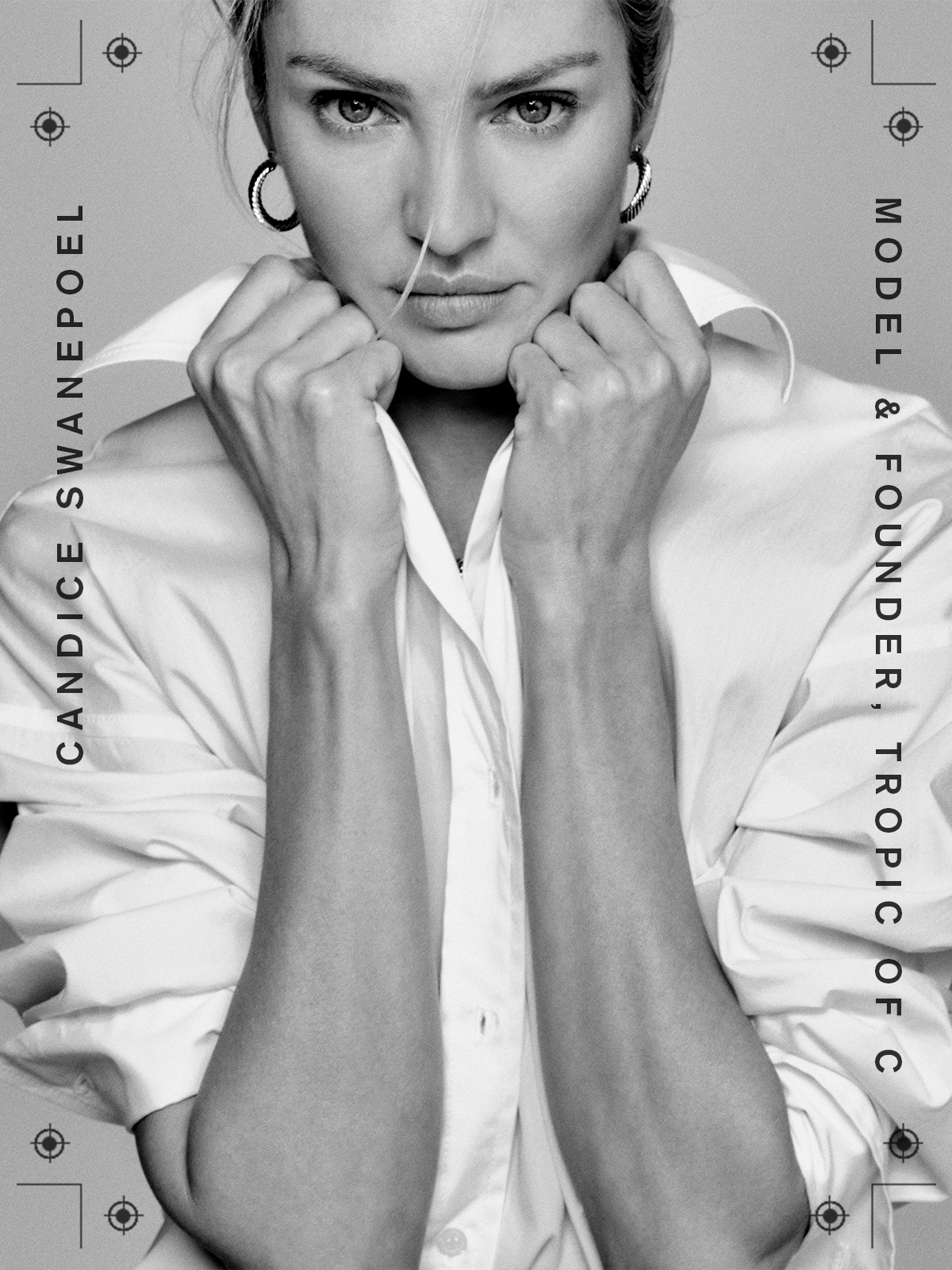
Candice Swanepoel: model, founder of Tropic of C, and brand ambassador for Anne Klein.
Welcome to our podcast, Who What Wear With Hillary Kerr. Think of it as your direct line to the designers, stylists, beauty experts, editors, and tastemakers who are shaping the fashion-and-beauty world. Subscribe to Who What Wear With Hillary Kerr on Apple Podcasts and Spotify.
Supermodel Candice Swanepoel just may be *the* expert on what swimsuits to pack on your summer holiday. In 2018, Swanepoel co-founded Tropic of C, an eco-lifestyle and swimsuit brand. After a nearly 20-year-long career in front of the camera, Swanepoel took the skills she learned modeling for brands like Victoria's Secret and Anne Klein to the direct-to-consumer space.
Tropic of C is rooted in sustainability and community to create quality pieces that are meant to last and withstand the trend cycle. Swanepoel has always loved swimwear and being near a body of water when she has time off. As a kid, Swanepoel used to make swimsuits out of leftover fabric from her mother's dance concerts. "My mom was an aerobics teacher and a dance teacher when I was growing up, and we always had lycra and pieces of fabric laying around the house," Swanepoel said.
For Wholesale Replica Bag episode of Who What Wear With Hillary Kerr, Swanepoel shares what it was like launching her first collection, the swimsuits everyone should own, and more. For excerpts from their conversation, scroll below.
Through your first career, you know a lot about swimwear, but having a good eye for something and then actually understanding the market of a particular category are completely different things—let alone getting a brand up and running. I know that you launched in 2018, but at what point did you decide like, "You know what? I want to enter the market to start my own company, and this is what the vision is going to be."
Understanding the market was something that came later to me as I learned, but I had this dream of creating Tropic of C for years before I actually did it. I think that was partly because I had no time in my life because it wasn't like you were working at home. Nowadays, you can shoot a whole campaign just at home.
I was in the studio most of the year or on a beautiful beach shooting swimwear for Victoria's Secret. It was a way for me—while I was working—to analyze the product and really understand what worked for me, what I thought was beautiful. Creating my own vision of … my own brand, what would it look like?
I got to travel the world and got to go to some of the most beautifully natural places, and that's a huge inspiration for my brand. Then I got pregnant, and it was important to me to really enjoy that experience. Literally, as soon as I could tell people I was pregnant, I was like, "Oh, bye. I'm out."
I went to Brazil—where I had a home there—and I was enjoying my pregnancy. After being in an industry that's so fast-paced, stopping in that way wasn't gonna sit completely well with me. That's what gave me the space and time to really focus on the vision for Tropic of C.
Having an idea and carving out some time and space to work on it is one thing, but making a vision and a brand a reality is an entirely different prospect. Talk to me about the early days because it's a very different skill set. How did you take this idea and actually turn it into Tropic of C?
I think you somewhat go into it with a certain naivety. I had big dreams, and once I started going through branding and meeting people to construct a team, you figure out that it's not as easy as it feels.
I got pointed in the right direction to my partner, Daniela. I was already in New York at this point and figuring out how to construct a business, people's roles, equity. All of these things are like a whole other beast.
That's how I've always learned things—just by going through them. So in that time, I was quite well-known for being the swim girl. It was a huge part of my life and still is. Every time I would have time off, I'd be on a beach. That was organically the category that I wanted to start with.
My mom was an aerobics teacher and a dance teacher when I was growing up, and we always had lycra and pieces of fabric laying around the house. Even as a little girl, I was making swimsuits out of the leftover fabrics from her concerts. It goes a long way back.
Talk to me about the launch. I'm curious about how long it took from idea to actually creating that first collection.
It took a year to structure the business and get it up and running. Setting up a supply chain, distribution, it's really intricate. That takes about a year—at least for us. I'm a little bit of a perfectionist, and I've been in the fashion industry for 20 years now, so it was, for me, an evolution of my legacy. I didn't want to just license my name to somebody and not know what the product is and not care.
That was a big deal for me—the quality and what it looked like, how the packaging was. Those early days [were] the beginning of influencer culture. I was just daily horrified by little things packaged in a million plastic bags, and while going through branding, sitting at the table, I was like, "How can I feel good about this next chapter in my life? And what can we do?"
We started doing the research, and in that time, there were a couple of companies that had sprouted in Europe that were doing regenerated nylons and decomposable bags. Now, five years later, it's really amazing to see that it's an industry norm. That's how that started.
In the first collection, from design and quality and the back side of the business, I had been a perfectionist—and then continued to be—with the art directing, and I had chosen these amazing locations that were close to my heart. One in Brazil. We went to Turks and Caicos as well. The first shoot was really important for me and kind of a "pinch me" moment to feel like, "Wow, I did this. I went for it, and it's working. Here's the product in my hand. Here's my vision, and I get to be the boss."
I can only imagine that you obviously love all of the products and all of the styles the same. If you had to pick a favorite or a few favorites from the line currently, what would you say?
A lot of my favorites are in our core collection. We have a triangle bikini called Praia, which we bring whatever pattern or fabric of the season in that style, so that's a staple. You can have a million of them. They're small, but the quality it's just the way it holds you in. It's an everyday must, so I have a million of those in every print.
Recently, we've gone into more lifestyle and these beautiful knit cover-ups, which I'm loving. [They] can be worn to the beach or if you put a heel on at night as well. I guess one of the trends these days is these mesh dresses, so I was inspired by that a little bit.
We recently did a collaboration with Suzie Kondi. I love her—she's amazing. [She] really brought that kind of hippie lifestyle, and it's a whole terry collection. We did our classic bikinis and then sets that went with them, and I'm literally gonna live in those this summer. I love it. I'm like, "Can you send me all the samples? Like now?"
Are there any key pieces that you think everyone should have in their swim wardrobe—pieces that, if you buy it today, you will still love it in five years?
I would say there's a top called South Pacific, which I designed in one of our first collections that stayed in our core. It's a bra structured with a little sleeve that, again, can be worn as outerwear or on the beach. It frames the collarbone and the shoulders beautifully. I think that definitely is a staple.
I would say she has to have an animal print. She has to have black and white. One-pieces are always a go-to because you can really dress it up, dress it down, and look chic. Some of the knitwear dresses that you can just literally roll up and throw in a carry-on and be good to go. Those are my picks for this summer.
This interview has been edited and condensed for clarity. Next, check out our interview with Gabrielle Union.
